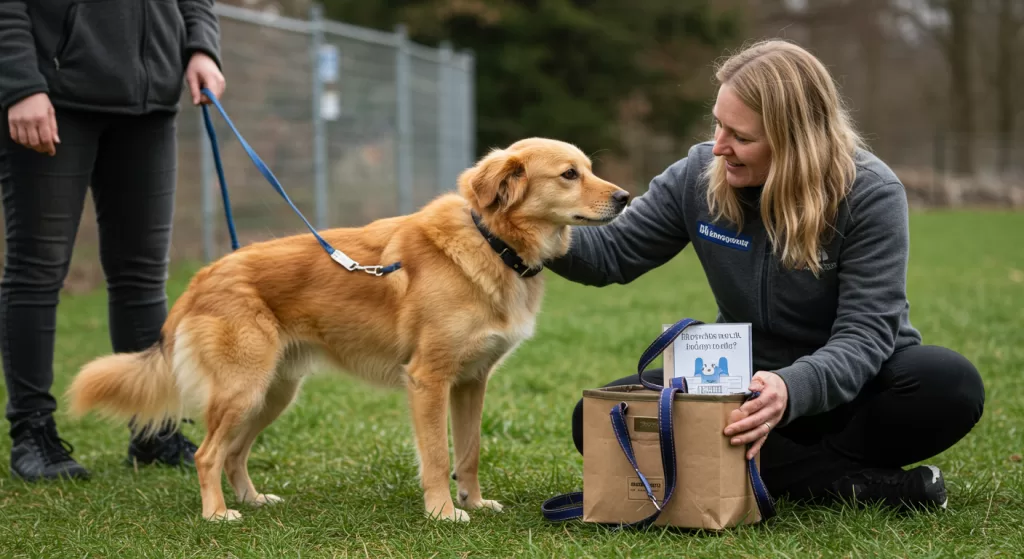
Pawsports Ready! Your Ultimate Guide to Moving to Portugal with Your Dog 🐾
So, you’re dreaming of cobblestone streets, delicious pastéis de nata, and a new life in Portugal? Fantastic! But what about your furry best friend? Don’t worry, bringing your dog along for the adventure is totally doable. This guide will walk you through everything you need to know about moving to Portugal with your dog, from paperwork to pet-friendly apartments. Let’s make this move a happy one for both of you!
Key Takeaways:
- ✅ Portugal is generally a very dog-friendly country, making it a great place to relocate with your canine companion.
- 📝 Make sure your dog is microchipped, vaccinated (especially against rabies), and has a valid EU pet passport or an Animal Health Certificate.
- ✈️ Research airline pet policies carefully and choose a pet-friendly airline for a stress-free journey.
- 🏡 Finding pet-friendly accommodation in Portugal might take some time, so start your search early.
- 🐕🦺 Be prepared to adjust to the local regulations and customs regarding dogs in public spaces.
Is Portugal a Good Choice for Dog Owners?
Absolutely! Portugal is known for its welcoming attitude towards dogs. You’ll find many cafes, restaurants (with outdoor seating), and shops that allow well-behaved pups. Plus, there are plenty of parks and beaches where your dog can stretch their legs and enjoy the sunshine. While some restrictions apply, especially in certain tourist hotspots, Portugal is generally a very dog-friendly country. This makes it a great place to consider moving to with your furry friend. You might even find some similarities to the vibes of Madeira, Portugal!
“Portugal’s relaxed attitude towards dogs makes it a dream destination for pet owners!”
Before You Go: Essential Preparations
Moving to another country with a dog requires careful planning. Here’s a checklist to get you started:
1. The Microchip is Key 🔑
Your dog must have a microchip that complies with ISO standards 11784 and 11785. This is the first step and should be done before any vaccinations. The microchip number needs to be recorded on all your dog’s documents.
2. Rabies Vaccination: Non-Negotiable 💉
A valid rabies vaccination is mandatory. Your dog must be at least 12 weeks old to receive the vaccine, and you must wait 21 days after the vaccination before traveling. Keep the vaccination certificate handy! This is super important for a smooth transition.
3. EU Pet Passport or Animal Health Certificate (AHC) 📜
- EU Pet Passport: If you’re moving from another EU country, your dog likely already has an EU pet passport. Make sure it’s up-to-date with all the necessary vaccinations and treatments.
- Animal Health Certificate (AHC): If you’re coming from a non-EU country (like the US or UK post-Brexit), you’ll need an AHC. This certificate must be issued by an authorized veterinarian within 10 days of your arrival in Portugal. It confirms your dog meets all the health requirements for entry.
- AHC Requirements:
- Completed by an official veterinarian.
- Valid for 10 days for entry into the EU.
- Valid for onward travel within the EU for 4 months.
- Must include details of microchip, rabies vaccination, and any other required treatments.
- AHC Requirements:
4. Other Vaccinations & Health Checks 🩺

While rabies is the big one, it’s a good idea to ensure your dog is up-to-date on all other core vaccinations, such as:
- Distemper
- Parvovirus
- Adenovirus
- Parainfluenza
A general health check-up before the move is also wise. Talk to your vet about any preventative treatments they recommend, such as flea and tick control.
5. Tapeworm Treatment (If Applicable) 🐛
Depending on where you’re coming from, your dog might need tapeworm treatment (Echinococcus multilocularis) before entering Portugal. This usually needs to be administered by a vet 24-120 hours before arrival. Check the specific requirements based on your country of origin.
6. Paperwork, Paperwork, Paperwork! 📑
Keep copies of everything. Vaccination records, health certificates, microchip information, and your own travel documents. Store digital copies as well, just in case.
7. Choose Pet-Friendly Airlines and Plan the Journey ✈️
Not all airlines are created equal when it comes to pet travel. Research airlines that have a good reputation for handling animals. Consider factors like:
- Cargo vs. Cabin: Smaller dogs might be able to travel in the cabin with you, while larger dogs will likely need to travel in the cargo hold.
- Airline Restrictions: Some airlines have breed restrictions or size limitations.
- Temperature Regulations: Airlines have temperature restrictions to ensure the safety of animals in cargo.
- Cost: Pet travel fees can vary significantly between airlines.
Tips for a smoother flight:
- Book your dog’s flight well in advance, as space is often limited.
- Choose a direct flight whenever possible to minimize stress.
- Acclimatize your dog to their travel crate beforehand.
- Provide a comfortable bed and familiar toys in the crate.
- Avoid feeding your dog a large meal before the flight.
- Attach a label to the crate with your contact information and your dog’s name.
8. Crate Training: A Must 📦
Whether your dog is traveling in the cabin or cargo, getting them comfortable with a crate is crucial. Start crate training well in advance of your move. Make the crate a positive space with treats, toys, and comfortable bedding.
9. Update Your Dog’s ID Tag 🏷️
Make sure your dog’s ID tag includes your current phone number and, if possible, your temporary address in Portugal. You might also want to consider a GPS tracker for added peace of mind.
10. Pet Insurance: Protect Your Furry Friend 🛡️
Consider getting pet insurance that covers your dog in Portugal. This can help with unexpected vet bills. Research different providers and compare coverage options.
Finding Pet-Friendly Accommodation in Portugal 🏡
Finding a place to live that welcomes pets can be one of the biggest challenges of moving to Portugal with a dog. Here are some tips:
- Start Your Search Early: Don’t wait until the last minute to begin looking for accommodation.
- Use Pet-Friendly Filters: When searching online, use filters to specifically look for pet-friendly properties.
- Be Direct: When contacting landlords or property managers, be upfront about having a dog. Provide information about your dog’s breed, size, and temperament.
- Consider Location: Think about the proximity to parks, beaches, and other dog-friendly areas.
- Be Prepared to Pay More: Some landlords may charge an additional pet deposit or higher rent.
- Look Beyond Apartments: Consider houses with gardens or properties in more rural areas where pets are more readily accepted.
- Network: Reach out to expat communities and online forums for recommendations on pet-friendly landlords or neighborhoods.
“Patience is key when searching for pet-friendly accommodation. Don’t give up, the perfect place is out there!”
Websites to explore:

Adjusting to Life in Portugal with Your Dog 🇵🇹
Once you’ve arrived in Portugal, there are a few things to keep in mind to ensure a smooth transition for both you and your dog:
1. Local Regulations and Customs 📜
- Leash Laws: Dogs are generally required to be on a leash in public areas.
- “Pick Up After Your Pet”: It’s mandatory to clean up after your dog. Carry poop bags with you at all times.
- Restricted Areas: Some beaches and parks may have restrictions on dogs, especially during peak season. Look for signage indicating where dogs are allowed.
- Dog Parks: Many cities have designated dog parks where your dog can run off-leash and socialize.
- Transportation: Dogs are generally allowed on public transportation, but they may need to be in a carrier or wear a muzzle. Check the specific rules of the transportation provider.
2. Finding a Local Vet 👨⚕️
Establish a relationship with a local veterinarian as soon as possible. This is important for routine check-ups, vaccinations, and any unexpected health issues. Ask for recommendations from other expats or pet owners.
3. Dog-Friendly Activities 🏞️
Portugal offers plenty of opportunities for dog-friendly activities:
- Hiking: Explore the many hiking trails with your dog.
- Beaches: Many beaches allow dogs during the off-season.
- Parks: Visit local parks for walks and playtime.
- Cafes and Restaurants: Many cafes and restaurants with outdoor seating welcome dogs.
- Dog-Friendly Tours: Some tour operators offer dog-friendly walking tours.
4. Socialization 🐕🦺
Help your dog adjust to their new surroundings by socializing them with other dogs and people. Visit dog parks, go for walks in busy areas, and introduce them to new experiences gradually.
5. Language Barrier 🗣️
Learn a few basic Portuguese phrases related to dogs, such as:
- Cão (dog)
- Coleira (leash)
- Veterinário (veterinarian)
- Bom menino/menina (good boy/girl)
6. Dealing with Common Dog-Related Issues 🚧
Be prepared to deal with common dog-related issues, such as fleas, ticks, and parasites. Talk to your vet about preventative treatments and be vigilant about checking your dog regularly.
Common Breeds in Portugal
While any breed can be happy in Portugal, you’ll notice some are more common than others. These include:
- Portuguese Water Dog (Cão de Água Português): Obviously! These intelligent and energetic dogs are native to Portugal.
- Serra da Estrela Mountain Dog (Cão da Serra da Estrela): A large and loyal breed traditionally used for guarding livestock.
- Labrador Retriever: A popular breed worldwide, known for their friendly and outgoing nature.
- German Shepherd: Another popular breed, often used as working dogs.
- Mixed Breeds: Many Portuguese families adopt mixed-breed dogs from shelters.
Cost of Owning a Dog in Portugal 💰
The cost of owning a dog in Portugal can vary depending on factors like breed, size, and lifestyle. Here’s a general breakdown:
| Expense | Estimated Cost (per month) | Notes |
|---|---|---|
| Food | €30-€100 | Depends on the size and brand of food. |
| Vet Care | €20-€50 | Includes routine check-ups, vaccinations, and preventative treatments. |
| Pet Insurance | €15-€40 | Optional, but recommended. |
| Grooming | €20-€50 | Depends on the breed and frequency of grooming. |
| Toys & Accessories | €10-€30 | |
| Total | €95-€270 | This is just an estimate. Costs can vary depending on individual circumstances and your dog’s needs. |
Remember to budget for unexpected expenses, such as emergency vet visits or specialized care.
Resources for Expats Moving to Portugal with Dogs 📚
- Online Forums: Look for expat forums and Facebook groups where you can connect with other pet owners in Portugal.
- Veterinary Clinics: Research local veterinary clinics and read reviews.
- Pet Supply Stores: Find pet supply stores near you for food, toys, and accessories.
- Dog Walkers and Pet Sitters: If you need help caring for your dog, look for reputable dog walkers and pet sitters.
- Animal Shelters: If you’re considering adopting a dog in Portugal, contact local animal shelters.
Conclusion: A New Adventure Awaits! 🌍
Moving to Portugal with your dog can be a rewarding experience. With careful planning and preparation, you can ensure a smooth transition for both you and your furry friend. Portugal’s dog-friendly culture, beautiful scenery, and welcoming attitude make it a great place to call home. Embrace the adventure and enjoy your new life together! Don’t forget to check out other helpful resources like intro to our adventure/ and Moving to portugal
“Moving abroad with your dog is a big step, but the rewards of sharing your adventure with your best friend are immeasurable!”



